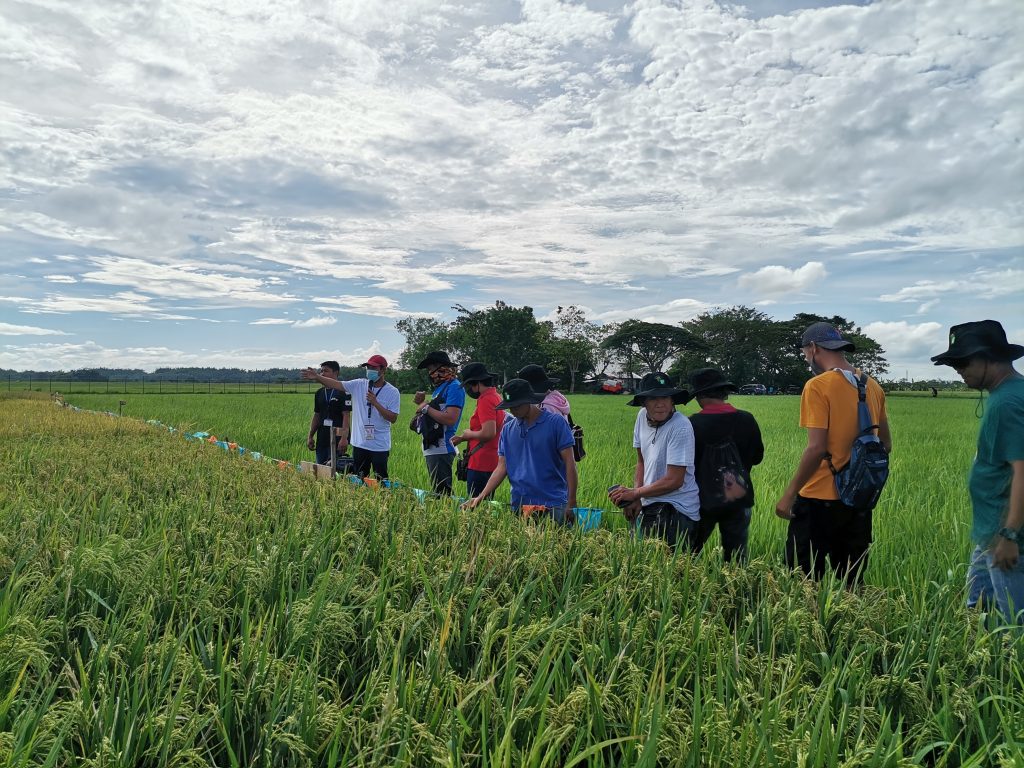
A field walk featuring newly released inbred and hybrid varieties, and discussing the Abonong Swak fertilizer options was conducted to promote cost-reducing and yield-increasing technologies for rice production at Brgy. Manguna, Cabatuan, Iloilo on Nov. 25.
Inbred varieties showcased were NSIC Rc 534, Rc 514, Rc 506, Rc 510 and NSIC Rc 490H, Rc 504H for hybrid.
R&D Coordinator Alvin Palanog emphasized the importance of evaluating varieties because this will give farmers options on what’s compatible with their needs.
Palanog also explained the feasibility and advantages of following the recommended seeding rate of 40kg/ha, how it reduces cost, and promotes healthier and stronger seedlings.
One of the participating farmers, Jenelyn Sangrador, was able to choose what rice variety to plant next season upon observing the featured varieties. She reported that she follows the 40kg/ha seeding rate.
“At first, I was hesitant in adapting the technology because I thought 40kg of seeds is not enough and I was doubtful that it will have a good crop stand. But as I observed the progress of my crop, I was amazed by the results and I am now convinced that using the recommended seeding rate is a good choice,” she expounded.
The conduct of field walks will continue in other identified sites for technology demonstration such as Patnongon, Antique; Jordan, Guimaras; and Binalbagan, Negros Occidental.




